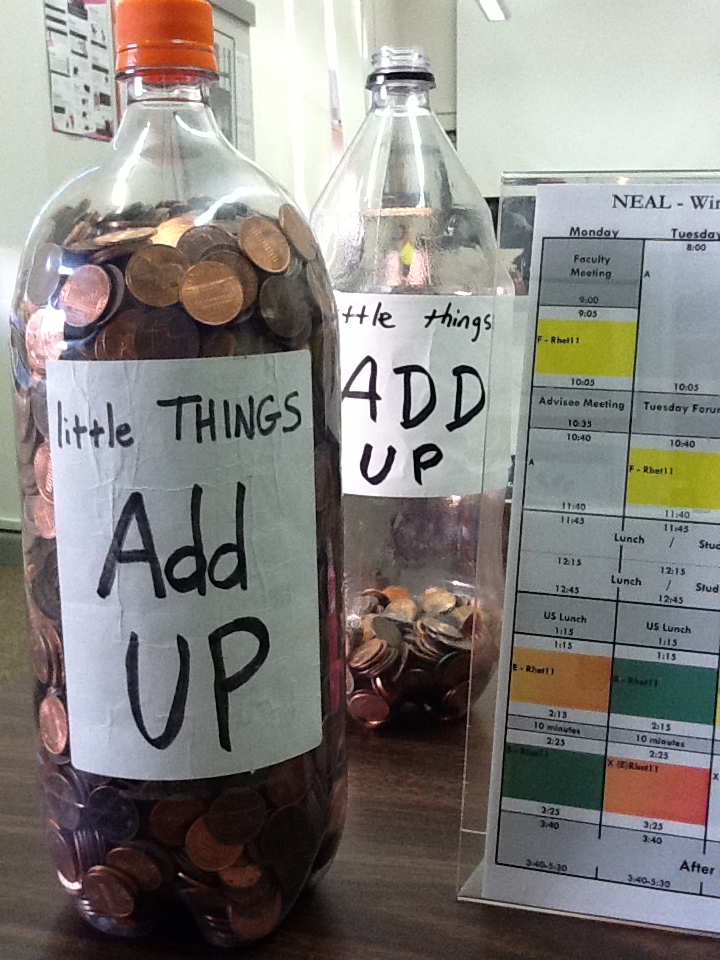What is your money personality? Take this quiz and find out.
Ever wondered what your money personality is? This short quiz adapted from Ask The Money Coach by Lynette Khalfani-Cox might give you a rough idea. Like all quizzes it is not scientific, and we tend to have a combination of traits, but it gives a pretty good indication of our thoughts around money.
Take a piece of paper and answer the questions below. Try not to overthink them, you want to respond based on your instinct, and what you would actually do- not what a “better” money version of you would.
1. If my car breaks down, if I need KES 50,000 for a parent’s medical expense, or some other emergency happens, then:
a. I don’t think it would be a problem, because I try to put aside money for emergencies.
b. I would be financially stressed – yet again. My money is so tight that even though I want to put aside some extra savings, so far I haven’t been able to do so.
c. I’d use the savings from my emergency fund that I’ve built up over time. Hopefully, it would be enough to cover any situation.
d. I would just use my credit cards to pay for it, and figure out how to pay them off later.
e. I probably wouldn’t panic since I tend to budget for those kinds of things.
2. Right now, my retirement investment account:
a. Is growing slowly but surely.
b. What retirement savings account? I can barely pay the bills I have today.
c. Is fairly well funded. But I still worry about outliving my money.
d. Is next to nothing. I’ve only put aside a little bit for retirement, or I’ve had to borrow from my retirement account to make ends meet.
e. Is right about where it should be. I’m on target to reach my retirement savings goals.
3. If somebody gave me KES 2 million unexpectedly, my first thought would be:
a. “Great. I’ll be able to add a chunk of this money to my investment fund.”
b. “Now I can buy something I’ve wanted to get for myself, a family member or friend.”
c. “I’ll put this money away for a rainy day. I might need it in the future.”
d. “Yes!!!!!!!! Time to upgrade my phone, TV, home furniture, and take a holiday!”
e. “How can I invest this money wisely?”
4. When it comes to mobile loans and credit cards:
a. I almost always pay off the entire balance when it is due.
b. I often pay the minimum payment or have missed a payment recently.
c. I have no debt because I rarely use credit.
d. My phone is full of texts from mobile loan companies because I owe them so much
e. I use debt only on an emergency basis.
5. I would describe my financial records as:
a. I regularly balance my books and at any one point, I know how much is in my accounts. I am not sure how much I spend on each spending category though.
b. Slightly disorganized. I really don’t keep close tabs on my financial documents – my bank balance sometimes surprises me.
c. I keep detailed files and organized paperwork.
d. My financial records are a mess; besides, I hate keeping receipts.
e. I use a computer spreadsheet (or an app) to track all my finances.
Now review your answers to see the letters you checked most: As, Bs, Cs, Ds, or Es?
Scored Mostly As: SAVER
You regularly set aside money, and make a point to build a cash cushion for a rainy day. The greatest risk a saver faces is that you tend to be risk-averse and therefore will keep money in the bank account (or other low-risk, low return accounts), and therefore your money does not grow as quickly as it should. Your money may even lose value because it is growing at a lower rate than inflation.
Recommendation: Dip your toes into investments, and slowly grow your comfort level around risk. You can start by consulting an investments professional who will help you draw up an investment strategy that takes your personality type into account.
Scored Mostly Bs: SPENDER
You spend everything you earn (and possibly more than you earn), and you are living paycheck to paycheck and are most probably carrying some credit card or mobile loan debt. You are often tempted to buy frivolous or luxury items that you can’t afford. You have a hard time budgeting, delaying gratification, and saving. You find yourself fantasizing about a big payday that will sort out all your financial troubles – your current income is a temporary setback.
The greatest risk a spender faces is that you will retire poor. There is no big payday coming, and even if it did, your spending habits would leave you with very little money for the future.
Recommendation: Some introspection, to evaluate why you feel the need to spend – is it emotional, or are you a victim of peer pressure and the need to show your peers that you are doing well? Secondly, start changing your habits by protecting your money from yourself. Automate your savings and investments. It will feel counter-intuitive at first, but with time you will learn to live with less money. A realisation that the people around you do not care as much as you think they do (about your possessions) may help. Spend time appreciating what you have, and maintaining the stuff you already own. Avoid spending triggers (advertisements, visiting malls, etc). If you are addicted to spending, it may help to seek psychological support.
Mostly Cs: HOARDER
Not having money makes you anxious, and you worry excessively about the future. As a result, you do everything possible to save money, to the extent of compromising your well being. You probably invest close to everything you earn, because your lifestyle is super-frugal. Many things that people consider fun or essential are a waste of money to you. Hoarders are at risk of denying themselves and their loved ones some conveniences that make life easier and dying without having enjoyed their money at all.
Recommendation: Hoarders’ need to hoard money (and the reassurance having money gives them) may come from money trauma in the past. Maybe growing up their parents enjoyed financial security which was taken from them suddenly and this caused suffering. There might need to seek some psychological support to deal with that anxiety. If you are a hoarder, work on getting a balance between being safe for the future, and enjoying your money today. Remember that once you are not around, those around you will enjoy your wealth unreservedly. Put in place some risk management measures (a good medical cover, life insurance, a will), and that will give you some relief from the anxiety.
Mostly Ds: THE SPLURGER
You may not spend everything you earn. You are a fairly good saver and even have a decent investment plan. Your biggest money weakness is that you are an occasional, impulsive spender. You are prone to random big expenditures (that you sometimes regret). You see these expenditures as a way of rewarding yourself for the good job you have done so far.
The biggest risk facing you as a spender is that your expenditure often undoes any investment gains you make. You lose out on the benefit of compound interest.
Recommendation: Protect yourself from your money by limiting the amount of cash you have at your disposal at any one time. Lock the savings you make, put in place systems to re-invest all the earnings you make, then on occasion you can consciously reward yourself. The most important thing is to not have money lying around.
Mostly Es: Goal Setter
You are privileged to belong to a special group (even I am not in this group) that is very rational and sensible about their money. You only like to spend your money on items or activities that are budgeted, carefully calculated, or and/or planned in advance.
You are on course to meet your investment and retirement targets, and generally, you do not have much anxiety about money.
Stay on track!



